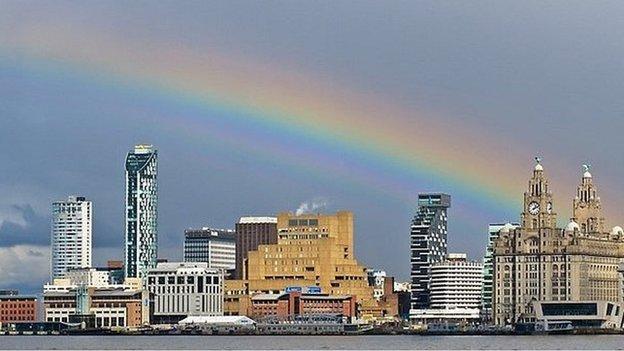Liverpool City Region mayoral election: Your questions answered
- Published
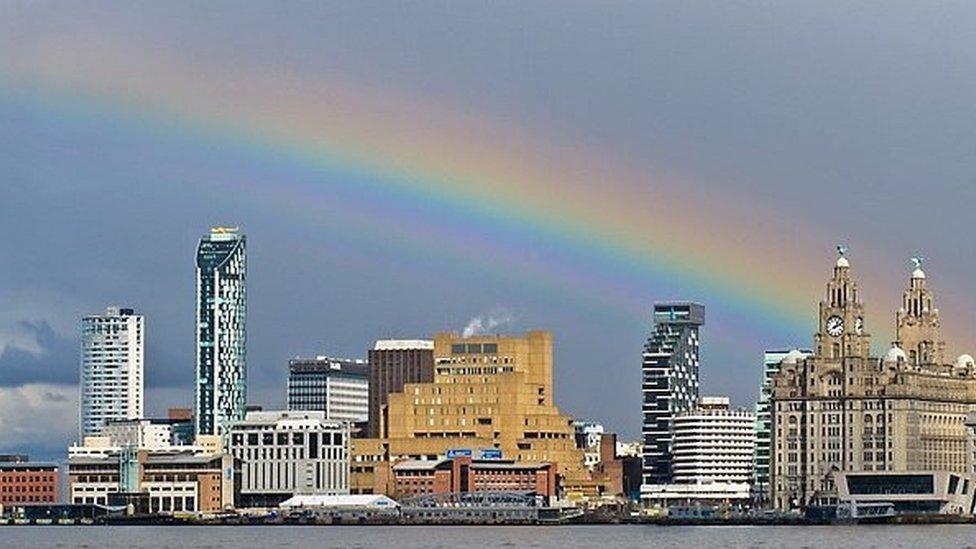
The new mayor will be elected as figurehead of the Liverpool City Region
You've been sending in your questions about the upcoming Liverpool City Region mayoral election.
Voters will head to the polls across five Merseyside boroughs plus Halton in Cheshire on 4 May.
You wanted to know about what powers the mayor will have and how the wider region will be affected as the new devolution model takes shape.
We put your questions to the BBC's North West political reporters and political editor.

Q. What will the mayor do for the outer regions that fall into the Liverpool City Region? A small town like Southport's needs are different to a big city?
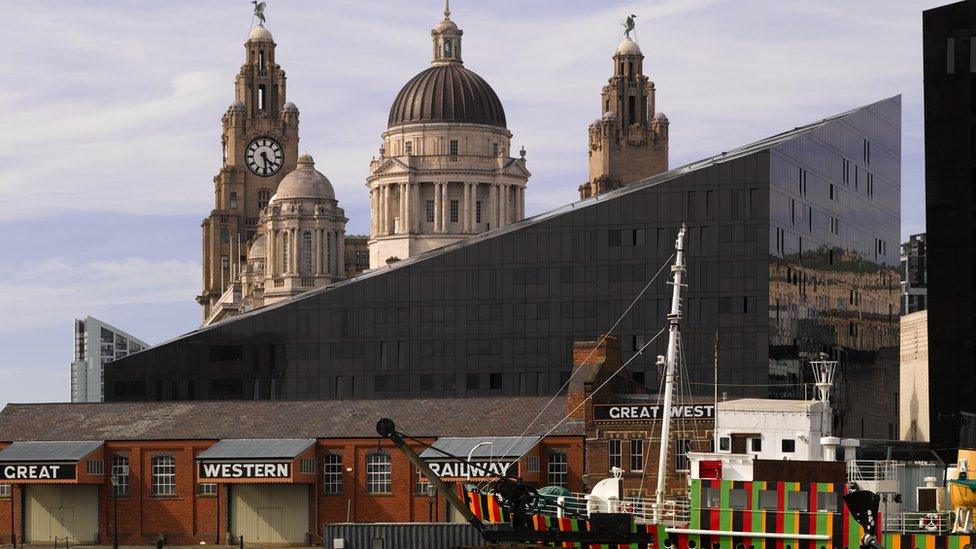
Interestingly, none of the candidates are actually from the city of Liverpool
This is one of the biggest challenges facing the mayor.
In Southport, for example, many people feel they have more in common with Lancashire than Liverpool. Do they want to be included in "brand Liverpool"?
In St Helens, a group of students said they thought the town possibly had more in common with Manchester, especially given that neighbouring Wigan is part of the Greater Manchester combined authority.
Each of the candidates insist they'll work to ensure all citizens benefit equally.
Interestingly, none of them are actually from the city of Liverpool, so they would all argue they were certainly not Liverpool-centric in their approach.
The mayor will have a strategic overview of the whole city region, which arguably means that, when it comes to investment, they can make decisions based on needs and skills rather than concentrating on one small local authority area.
The mayor will need the backing of each district council leader on matters including spending, and how to develop training and employment.
So, at least in theory, each area will be able to fight its corner and make sure its citizens' voices are heard.

Q. Why do we need three mayors in Liverpool? We will soon have a Lord Mayor, a city mayor and a regional mayor. Plus all their deputies. Isn't this a drain on finances in itself?
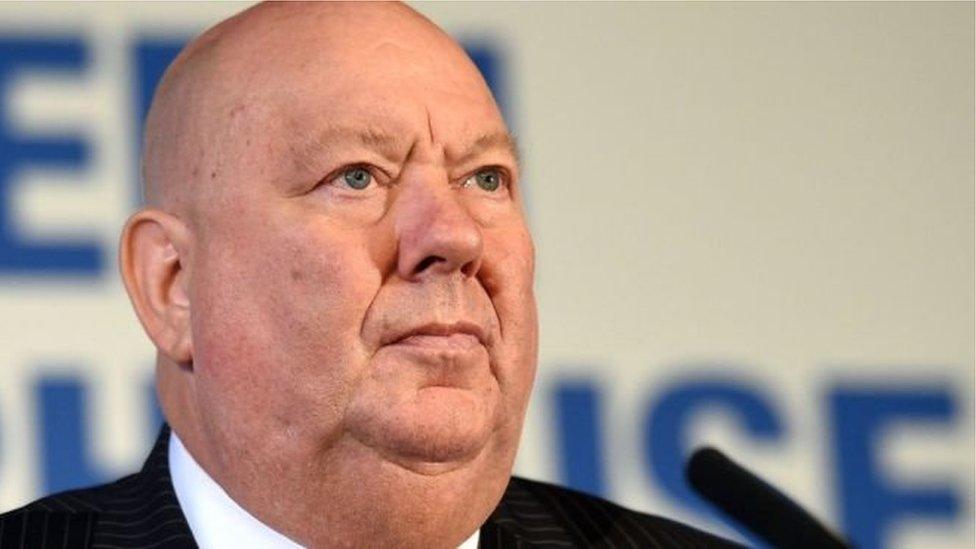
Liverpool's incumbent city mayor Joe Anderson will continue in his role alongside the new metro mayor
This is the question which comes up every time BBC reporters speak to people about plans for a metro mayor.
In Liverpool, there will indeed be three mayors after 5 May. The civic mayor is the one with the gold chains who opens fetes and chairs council meetings.
The role of elected city mayor has existed since 2012 - Joe Anderson is the incumbent; he was re-elected in 2016. Mr Anderson will carry on in the role, though he recently revealed his own ambitions may lie at Westminster.
The city mayor will remain in charge of the city on matters such as planning, school building, investment and culture.
The metro mayor, meanwhile, will be looking strategically across the whole city region and will have powers over local transport budgets, compulsory purchase orders and skills and training for the over 16s.
The metro mayor salary has been set at £77,500. The mayor of Liverpool will get £79,500 while the Police and Crime Commissioner post will pocket £85,000.
The money to run the Combined Authority and the metro mayor's office comes from the devolution deal done with central government.

Q. How will the elected mayor improve the state of some of the roads in the Liverpool City Region?
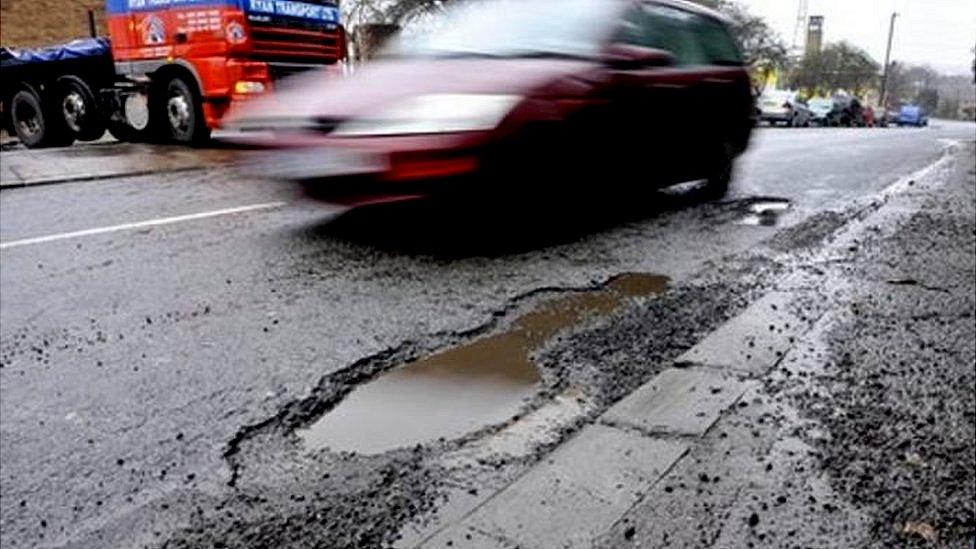
The metro mayor will be in charge of the whole region's transport budget, which could have an impact on roads
Repairing pot holes will still be the preserve of the individual local councils.
However, the strategic planning powers of the mayor may mean a more "joined-up" approach to identifying pot hole problems, and the mayor will also be well placed to lobby central government for more cash to fix them.
It's important to note the mayor will be in charge of the region's overall transport budget, which could have an impact on the roads.
There will be in regular talks with council leaders over things like highways maintenance, so the mayor is likely to have some clout.
- Published5 April 2017

- Published3 February 2017
